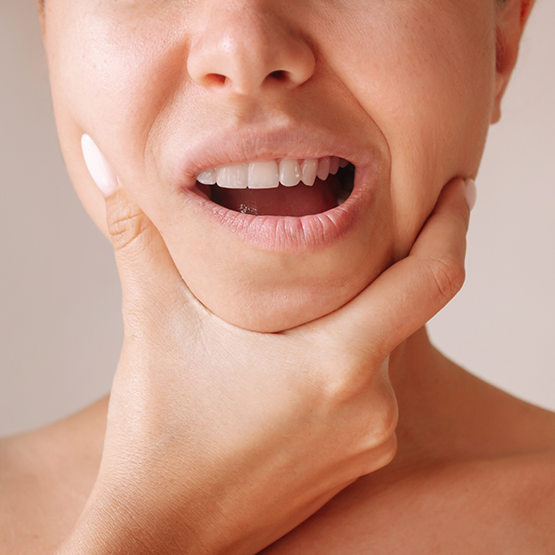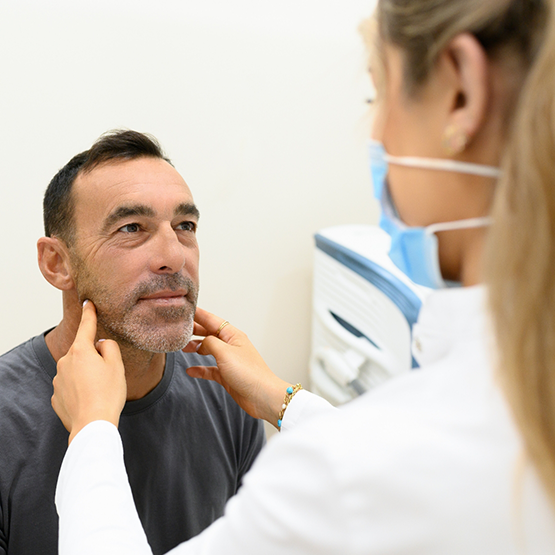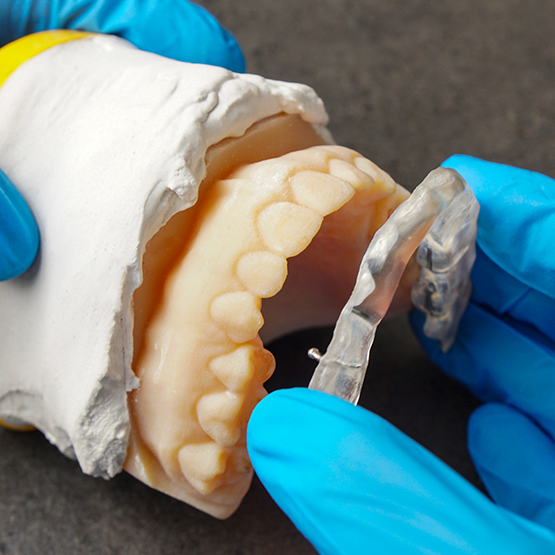TMJ Treatment Tallahassee
Relieve Jaw Pain & Renew Full Function
Put your fingers right in front of your ear lobes and move your jaw. That movement you feel is actually a set of joints called the temporomandibular joints (TMJ), and they enable your jaw to move smoothly whenever you speak or chew. Just like any joint in the body, they can become strained or injured, and this can cause a wide variety of problems. Dr. Ransey Boyd and Dr. Kirstin Walther are able to diagnose and treat TMJ Disorder, or TMDs (temporomandibular disorders) at their dental office, and will always keep an eye on your jaw when you come to see them. If you are suffering from chronic jaw pain, headaches, earaches or facial pain, please contact our dental office today so we can start helping you with TMJ treatment in Tallahassee.
Why Choose Boyd & Walther Dental Associates for TMJ Disorder Treatment?
- Effective & Protective Occlusal Splints
- Locally Owned & Operated Practice
- Family-Friendly Care for Patients of All Ages
What Is TMJ Disorder?

TMJ stands for “temporomandibular joint,” which is the paired joint that hinges either side of your lower jaw to your upper jaw, called the maxilla. When these joints and the muscles around them are stressed and filled with tension, it can lead to a variety of symptoms that signify TMJD, or TMJ disorder. This condition can make it uncomfortable or difficult to eat, speak, and even talk, and while some cases may require surgery, many can be remedied with other less-invasive interventions, like the ones our experts offer.
Symptoms of TMJ Disorder

Some common symptoms of TMJ disorder include:
- Lockjaw, which is when your jaw and neck muscles contract but don’t release, making it nearly impossible to close the mouth.
- Pain that radiates to the neck, face, and shoulder area.
- Clicking or popping sounds when you open or close your mouth.
- Headaches or ringing in the ears.
- Bruxism, or nightly teeth grinding.
If you notice any of these signs, we encourage you to schedule an appointment for our team to examine your mouth and help minimize your pain.
TMJ Diagnosis and Treatment

When you come in showing the signs of a possible TMD, our dentists will examine your jaw, face, and teeth to determine what’s leading to your discomfort. It may be because the joints themselves have been injured, or due to nightly teeth grinding (a condition known as “bruxism”) that’s straining the joints. Based on our findings, we may recommend either an occlusal splint or equilibration.
Equilibration/ Occlusal Adjustments

TMJ problems can sometimes be caused by the teeth coming together incorrectly. This can cause the teeth to slightly shift within your mouth and stimulate the nerve, creating a stinging pain. Rather than adjusting the large muscles of the face and jaw, your doctor may slightly modify your teeth so they come together in a more natural way. This usually consists of gently buffing away a small amount of enamel so that your teeth will simply slide together without shifting.
Occlusal Splint

Many people unconsciously clench their jaw throughout the day and while they sleep as well. This can put a lot of strain on the TMJ and eventually lead to chronic pain. An occlusal splint is one way our doctors can help with this issue. It is a small mouthguard that slides over your teeth and prevents the muscles in your jaw from contracting so much that they become strained. Many patients only need to wear them at night for a few weeks before their jaw naturally relaxes.
